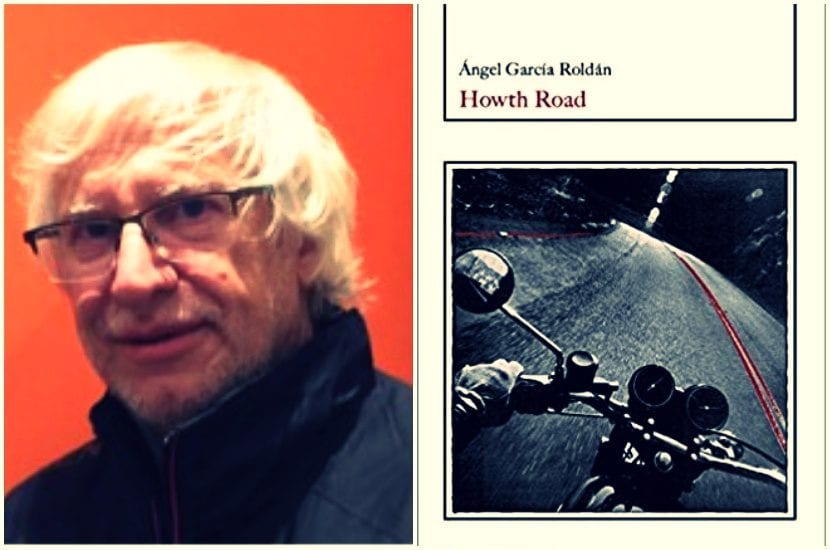
Photographs courtesy of Ángel García Roldán
I inaugurate the year of interviews with the writer and screenwriter Angel García Roldán, I thank you for your contact and time to tell us about your projects and answer the usual test of 10 questions. Winner of several awards and signer of scripts as recognized as that of the film Carol's journey, it also gives us an repaso to its trajectory and tell very interesting things about the literary scene figure.
Biographical data
Angel García Roldán (Arévalo, Ávila) has published the novels The Courts of Coguaya (Plaza & Janés International Novel Award), All the weight of silence (Ateneo de Santander Award) and To mouth at night, in addition to having won numerous national short story awards.
He is the author of the film scripts The journey of Carol y Bullying, has also written those of several TV series and has won the second Pilar Miró Award of TV movie scripts. With a technical and humanistic background, García Roldán is reviewing his latest novel and starting a new one.
Interview
-
Do you remember the first book you read? And the first story you wrote?
My memory, which will surely deceive me, dictates that the first book I read was The black arrowby RL Stevenson.
And I think I remember that the first story that I wrote, for a school assignment, it was a little incident, literally copied from the book The Tigers of Mompracemby Salgari. The teacher of course noticed, but instead of recriminating me, she encouraged me to keep writing about things that happened to me. And that's how the pleasure of writing was awakened in me.
-
What was the first book that struck you and why?
Carlos Vby Karl Brandi. My parents gave it to me when I was twelve because they noticed that I really liked the History. And I was impressed, not by the style in which it was written, but by the events it recounted: the life of an emperor! I lived then in an Avila town, but when I immersed myself in its pages, instead of seeing the Castilian wasteland, I was transformed into a dazzled witness of palace intrigues, battles, pacts. Marvelous.
-
Who's your favorite writer? You can choose more than one and from all eras.
Ufff! John Banville, Jane Austen, Raymond Carver, Paul Auster, Virginia Woolf, Coetzee, Camus, Javier Marías, Laurence Stern, Margarite Duras, Vargas Llosa, Flaubert, Thomas Mann, Tabucchi, Kafka, Nabokov ...
-
What character in a book would you have liked to meet and create?
Meet Emma bovary, but don't create the character.
-
Any mania when it comes to writing or reading?
Read, always in bed, before sleep.
As for writing, not having a window in front. For the simple fact that it would look up and distract me. I can easily abstract myself from noise, but not from the landscapes, the streets, the people passing by.
-
And your preferred place and time to do it?
My study, National Library, hotels, cafes. Fortunately I adapt to almost any site. Moment? From the 8 in the morning to 9 at night I have no predilection.
-
What writer or book has influenced your work as an author?
Unconsciously, everyone, for sure. But assuming it, Banville, Stern, Auster and the Llosa technique.
-
Your favorite genres?
Psychological, social, realistic novel ...
-
What are you reading now? And writing?
To keep the mind awake I usually read two novels at the same time; one day one and the next the other. I'm reading Berta Island, by Javier Marías, and Zapa Leatherby Balzac.
-
How do you think the publishing scene is for as many authors as there are or want to publish?
For a certain type of author it's very nice. I mean authors who choose the story they tell (content) rather than the style (form); and if what they tell are stories with film grammar, where events occur at a good pace and with stereotyped characters, all the better.
For those who prefer form, depth, nuances, highly crafted characters, phrases rewritten over and over again, and unconventional dialogue, the panorama not flattering.
With the disappearance of the Barral-type publishers, the large multinationals have acquired many important labels (example: Alfaguara, which belongs to Penguin), and the orders of what kind of literature to publish come from outside, from New York, London, Paris, etc. , Y by globalizing genres, they are trivialized, and incidentally dictate to readers what to read. Of course there are independent publishers, but far fewer that not so many years ago. And that is very harmful.
The media author has devoured the work, which is the one that should defend itself. Therefore, if you present a Newscast or are famous for events unrelated to Literature, you can write any little novel, which the publishers will "buy" for you. Or to order, which is what happens very often. And a lot of people buy those books.
If you are young and scandalous in any way, you have it better. If you are older, with the vast majority of publishers you have little to do; you are not attractive. Again, the character devours the work. Again, the global undermines the literary.
There is so much to talk about this ...